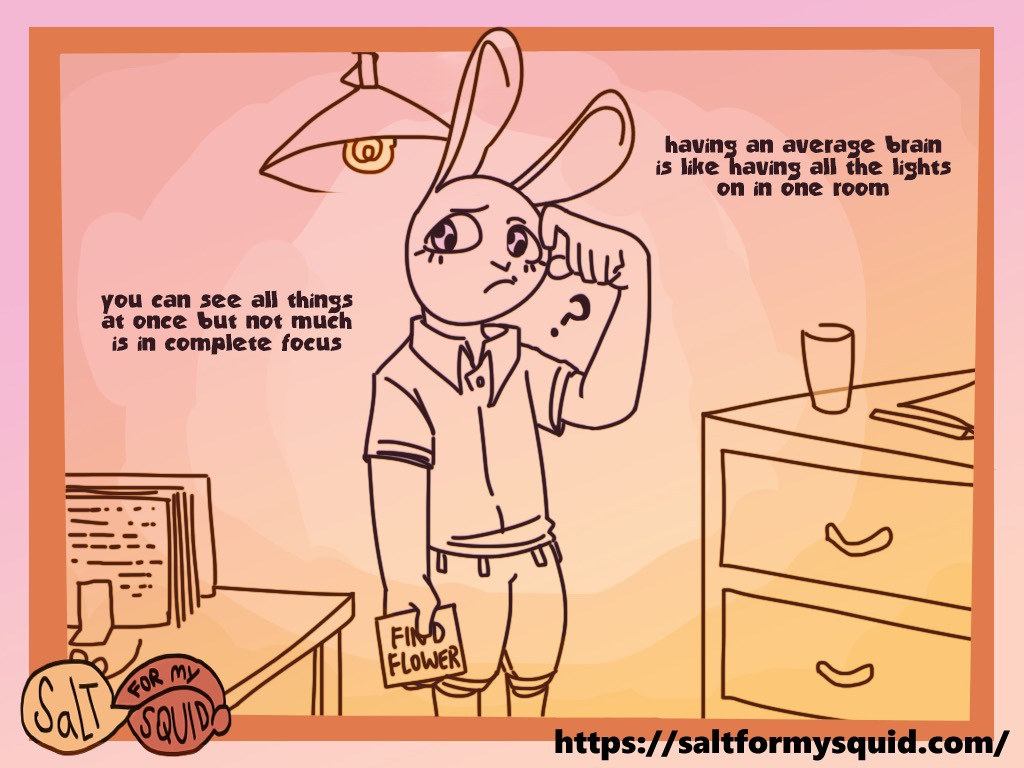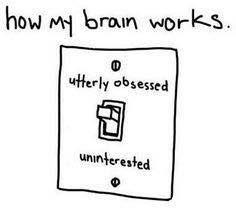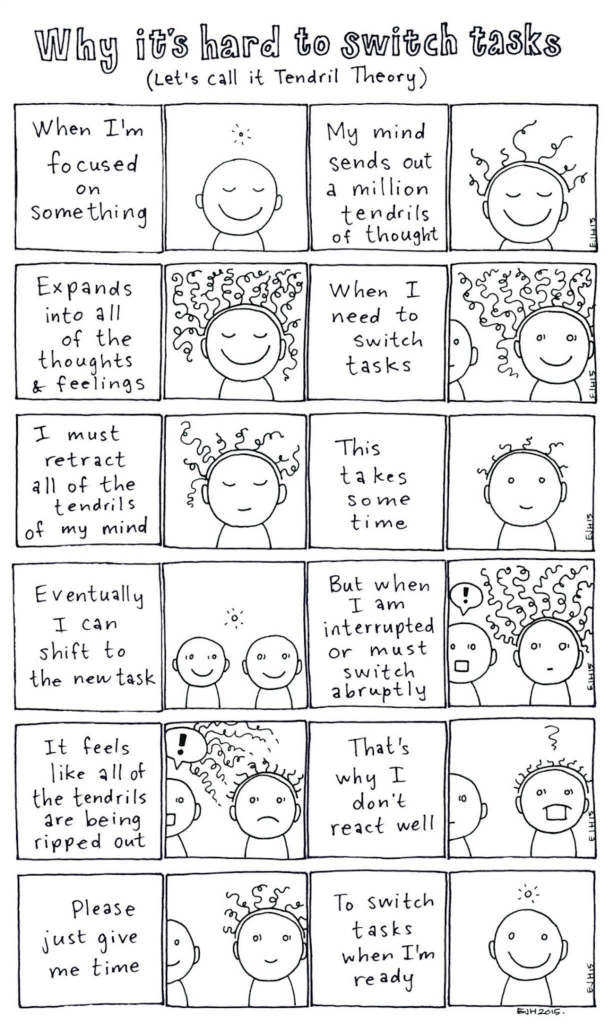Executive functioning is the name for the things your brain does to help you be organised, make good decisions, and get things done.
There are quite a few executive functioning differences in autistic people, which really affect how we do things:
We pay attention to things differently. As Salt for my Squid says:
“Having an average brain is like having all the lights on in one room. You can see all the things but not in complete focus.
Having an ausome (autistic) brain is like living life holding a torch. You can see some things really clearly but some things not at all.”


You can read more about our attention differences in our article on monotropsim.

Having a monotropic brain means we can have incredibly deep interests. This can be one interest, interests that change over time or just a deep desire to understand new things in detail. In the same way that we are able to focus a lot of energy into something we are interested in, it can be much more difficult for us to focus on things that we are less interested in.
You can read more about this in our page on special interests.
Because our brains are monotropic (they prefer to focus on a small number of things intensely), it can be very hard to switch from one task to another. This is because all of our brain power is focused on these things, and it needs time to unfocus, before refocusing on something else:

There are other reasons why switching activities can be hard too, read our article on Autistic Inertia for more information.
We can have differences in “working memory”. Working memory is like your brain’s “post-it notes” – where we remember bits of information for a short amount of time. Some autistic people have a very strong working memory where they can remember tons of things, some people have a much weaker working memory and can find it hard to keep instructions and details in their brain. This is linked to our information processing differences which you can read more about here.
Some autistic people may find it harder to organise their thoughts or plan ahead. Sometimes you can have everything you want to say/do in your brain, but it can feel “messy” and hard to work out how to actually do/say it.
Executive functioning also affects our impulse control. Sometimes, it can be really hard to not do impulsive things like grab shiny items, take a diamond on Minecraft or touch buttons you aren’t supposed to press! You may be judged for doing this when it isn’t always your fault!
Executive functioning differences do have benefits, but they can also make some things more difficult. You can always ask for help/ support, or put your own support in place with anything you find difficult.
Here are some ideas from us:
- Try to find places and spaces where you can use your brain to your advantage. Having to focus on lots at once may not work, but being in places where you can focus on a small number of things (especially your interests) can be really awesome.
- Can you ask people to give you a warning before switching tasks (e.g. once your game of Fortnite ends, it is time to do X), or give you time to adjust if there is an unexpected change of plan?
- If you are struggling to work out the steps that are needed to do something, can you ask people to break it down into smaller steps? Alternatively, there is an amazing website called Goblin Tools (https://goblin.tools/) where you can type in a task, and it breaks it down for you!
- If you are struggling with having a routine/ knowing what you need to do, Habitica is a great, fun way to keep track of things you need to do: https://habitica.com/static/home
- Using Google Calendar or Trello can be a great way to track what you need to do and when.
- Using visual reminders can be helpful for keeping track of your day, such as writing a list of things to do for the day, or putting things on post-it notes.
- Asking for written instructions rather than just spoken instructions can help make sure you have all the information and can keep going back over it if needed.
- It may be possible to ask for extra time to complete tasks.
- Chaining – while waiting for the kettle to boil when making a hot drink, you might find it easier to get something else done because you’re already on the move.
- Overwhelm – if you store too many jobs you need to do in your brain, it will struggle to do anything! Can you set a target of achieving a smaller amount of tasks in one time period?
- Sometimes once you have done one simple task it is easier to be motivated to move on to do more and more.
- Some people follow the ‘rule of three’: one quick win, one ‘do it or things will go badly’ task, one positive task.
- Object permanence – if you don’t see something you need, you may forget about it! It there’s an object you need to complete a task, keep it in view! E.g. keeping a glass of water wherever you are working/playing will mean you’re more likely to remember to have a drink, than if you keep it somewhere out of sight.



